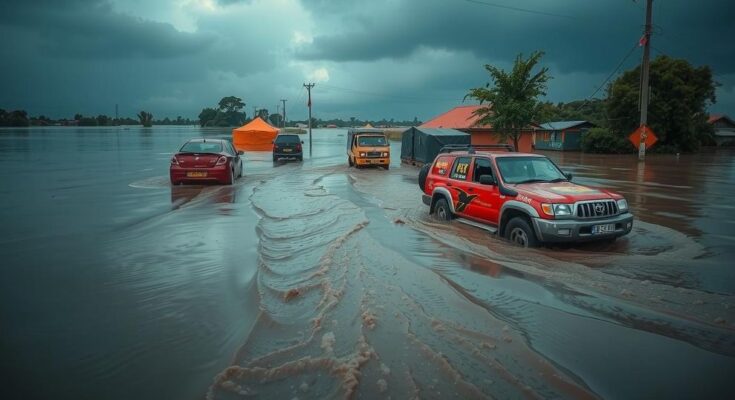The UN reports that severe flooding in South Sudan has affected over 1.3 million people, displacing approximately 327,000 individuals. The situation has been exacerbated by heavy rains rendering supply routes impassable, hindering humanitarian access. The country is also experiencing one of its worst flooding crises in decades, contributing to food insecurity.
The United Nations humanitarian agency has reported that severe flooding in South Sudan, resulting from persistent heavy rains, has profoundly impacted over 1.3 million individuals. An update from the UN Office for the Coordination of Humanitarian Affairs (OCHA), released in Juba, the capital, detailed that approximately 327,000 people have been displaced across 42 counties and the Abyei Administrative Area due to the floods. Additionally, the recent assessments by government and interagency teams have identified that 230,000 additional individuals, particularly in the Jonglei, Northern Bahr el Ghazal, and Upper Nile states, have been affected. OCHA emphasized that the ongoing floods have made 15 major supply routes impassable, significantly limiting access to the affected regions. The humanitarian situation has deteriorated due to increased rainfall, making physical access to communities seeking refuge on higher ground challenging, as roads and infrastructure have succumbed to flooding. South Sudan is currently experiencing some of the worst flooding in decades, leading to widespread devastation, impacting both homes and livelihoods as significant areas have been submerged. Furthermore, the UN forecast warns of persistent above-average rainfall, heightened river flows coming from Uganda, and the potential for record-breaking flood events. The country has also been identified as one of the 18 global hunger hotspots, with escalating food insecurity expected from June to October according to early warnings from UN agencies.
The background of this humanitarian crisis in South Sudan is rooted in extreme weather patterns exacerbated by climate change, leading to unprecedented levels of flooding. Over the years, South Sudan has endured conflict and insecurity, making it particularly vulnerable to such natural disasters. The recurrent floods have devastatingly affected agricultural lands, displacing large populations and contributing to a heightened state of food insecurity. The United Nations and other humanitarian organizations have been involved in efforts to respond to the crises, but access has continually been hindered by the worsening conditions on the ground.
In conclusion, the severe flooding in South Sudan represents a critical humanitarian crisis affecting over 1.3 million people. With the ongoing impact of heavy rains and a significant number of individuals displaced and in dire need, the situation necessitates urgent attention and action from both local authorities and international organizations. The challenges faced in accessing these communities further complicate recovery efforts, highlighting the need for enhanced support and resources.
Original Source: www.thehansindia.com




